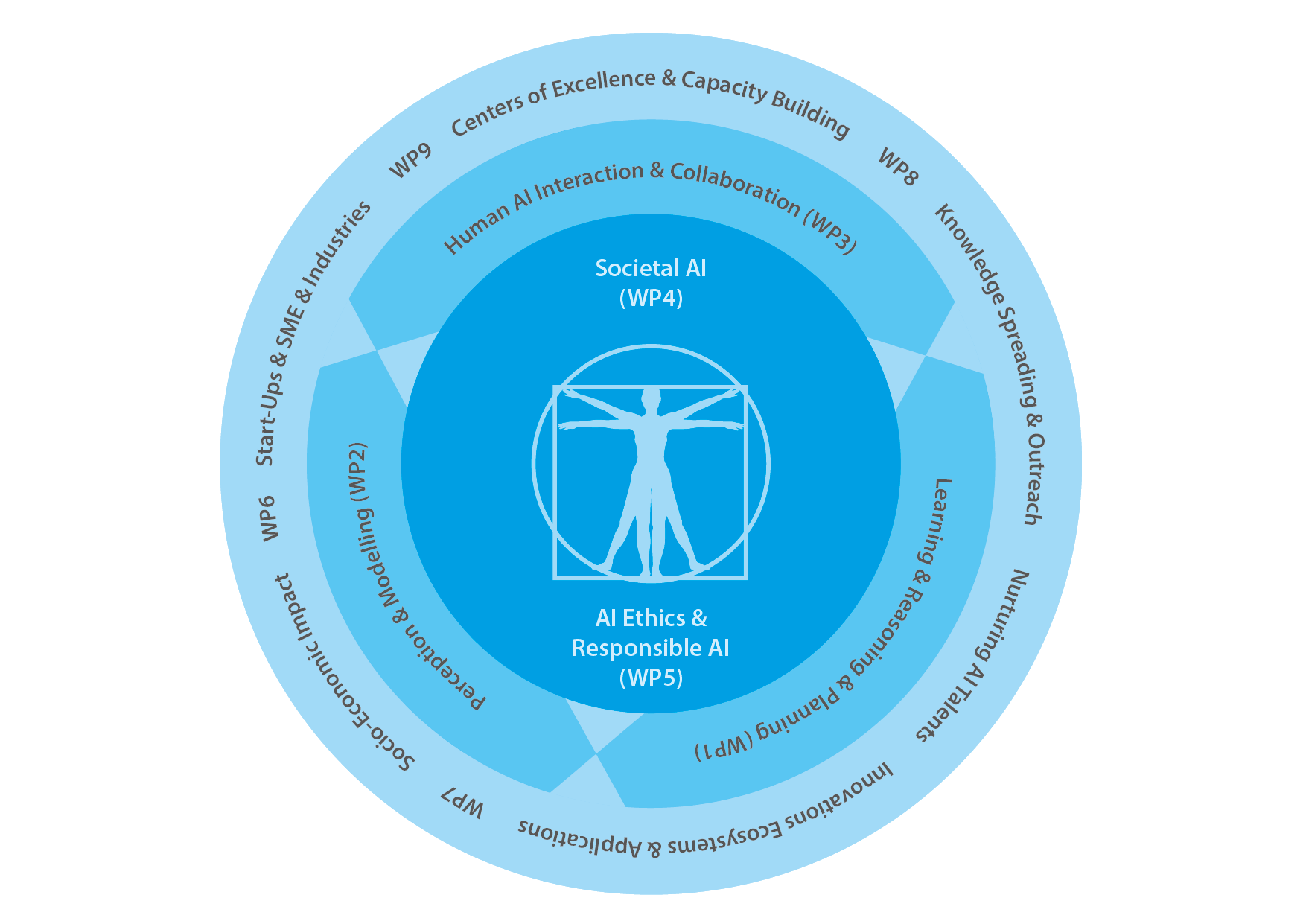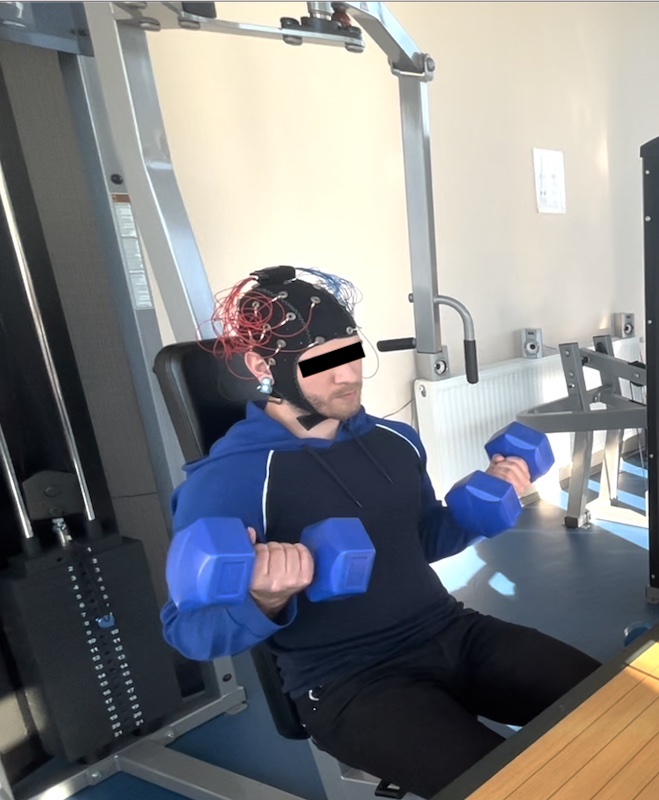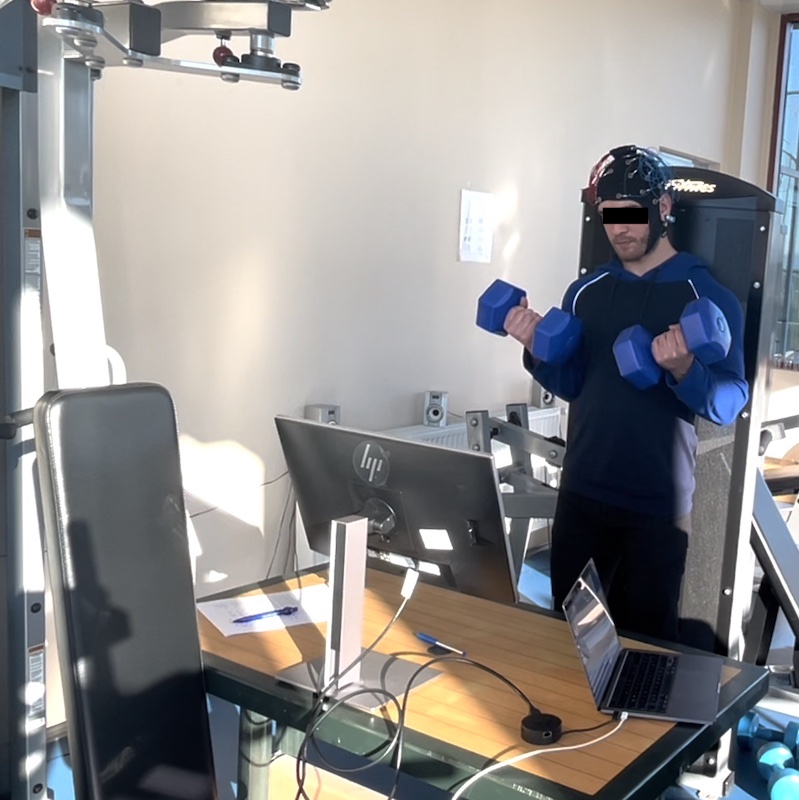HumanE Al Net
| Project Title | HumanE-AI-Net (A Network of European Human-Centered Artificial Intelligence Laboratories) |  |
| Project Duration | 6 months | |
| Support Type | Horizon 2020 | |
| Consortium | 20 countries & 53 partners |
Project Aim:
The development of robust and trustworthy artificial intelligence (AI) systems has fundamental challenges, such as understanding humans, adapting to complex real-world environments, and interacting appropriately in complex social environments. At this point, the general vision is to facilitate AI systems that improve human abilities, while also empowering individuals and society as a whole by taking into account human autonomy and self-determination. For the development of such systems, breakthroughs in the interfaces of various fields such as human-computer interaction, cognitive science, social sciences, complex systems are required instead of only traditional AI systems. The HumanE-AI-Net project brings together a community of expertise in all these areas and interfaces between them.
The project vision is built on ethical values and trust (Responsible AI). These are closely intertwined with AI's impact on society, including issues with complex dynamic interactions between networked AI systems, the environment and people. Therefore, the basic gaps in knowledge and technology are addressed in three closely related areas in relation to the main AI issues in the project content:
- Learning, reasoning and planning
- Multimodal perception of dynamic real world and social environments
- Human-friendly collaboration and co-creation in mixed human-artificial intelligence environments

In the project, it is expected that researchers from different institutions will develop micro-projects in collaboration to work on a well-defined research problem with a common goal. In this scope, TÜBİTAK BİLGEM and DFKI (Deutsches Forschungszentrum für Künstliche Intelligenz) have jointly made a micro-project.
Micro-project: Neural mechanism in human brain activity during weight lifting


Brain computer interfaces (BBA) are basically based on the conversion of the electrical activity of the brain into commands transmitted to external devices using the electroencephalography (EEG) signal. Today, BBA systems find application in prosthesis and assistive device control, as well as in measuring mood and cognitive workload. Neural mechanism in human brain during weight lifting has been investigated within the scope of the micro project.
Understanding the mechanism of the neural correlates during human physical activities is important for providing safety in industrial factory environments considering brain activity during lifting a weight. Moreover, different responses to the same task can be observed due to physiological and neurological differences among individuals. In this project, the change pattern in EEG has been investigated during lifting of a weight and the features in EEG data making difference during lifting a weight have been analyzed.
Classification between different loads of weights via EEG data has been realized by using deep learning based machine learning methods. The outcomes of the project can be applied in industrial exoskeleton applications as well as physical rehabilitation of stroke patient and sports applications.

Project Partners:

Project Website:



